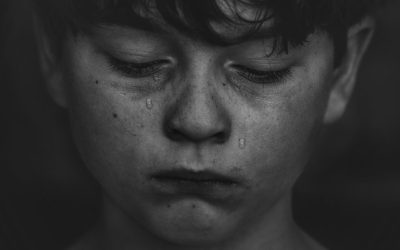No one is ever prepared for a tragedy. In fact, most of us go through our lives believing that tragedies happen to other people.
When people do experience a distressing or life-threatening event, such as a car accident, natural disaster, or terrorist attack, they often develop extreme anxiety or PTSD. Many develop ongoing problems with their personal relationships and their own self-esteem.
Everyone deals with trauma in their own way. There is no “right” or “wrong” way to respond to a tragic or terrifying event. Don’t let anyone, not even yourself, tell you that you should respond in a certain way.
Having said that, there are steps you can take to begin to heal and regain control of your life.
Accept Your Feelings
Ignoring your feelings of fear, shock, rage, terror, confusion, or guilt will only slow your recovery. In the moment, you may feel you must avoid your emotions. But, whether you accept or push them away, your feelings are real, and feeling them is necessary for healing. The good news is, even intense feelings will pass if you simply allow yourself to feel them.
Reframe Your Identity
After experiencing a traumatic event, it is common to feel helpless and out of control. To fully recover from the event, it is important that you eventually reframe your identity and challenge your feelings of helplessness. You can do this by taking action. Being proactive – even in small ways – will help you overcome feelings of fear and helplessness.
Consider volunteering for a cause that’s important to you. If that is too much of a time commitment, you could simply focus on helping a friend or neighbor. This will help you feel more powerful and in control of your environment.
Reach Out to Others
It is common for people to want to withdraw from loved ones and social activities following a tragic event, but connecting with others is necessary for recovery. Though you may not feel up to taking part in huge gatherings like you once did, a simple face to face conversation with a close friend or relative can trigger hormones that relieve stress.
You needn’t talk about the event with your loved ones, just simply spending time with them will help you feel more “normal.” Of course, if you feel like you need to talk about your feelings, reach out to those you know love and support you. You may also want to look into support groups in your local area so you can be around others who know what you are going through.
And finally, you may want to consider seeking guidance from a professional therapist who is trained in helping people who have experienced a traumatic event. They can help you navigate your emotions as well as give you tools to get back on your feet.
If you have experienced a traumatic event and feel you could use some guidance on your journey back toward peace and joy, please get in touch with us. You don’t have to suffer with your burden alone.

Mass Shootings: How to Talk to Your Kids
After the tragedy at Columbine High School in Littleton, Colorado in 1999, certainly no one could imagine that over the next 20 years, 200 more school shootings would occur. In the first 79 days of 2018 alone, there were 12 school shootings, compared to 9 over the...
What is PTSD?
Post-Traumatic stress disorder (PTSD) is a psychiatric disorder that typically occurs after individuals have experienced or witnessed a traumatic event such as a serious accident, natural disaster, a terrorist act, war/combat, rape or other violent personal assault....
How to Help Children Understand Terrifying Events
As a parent, your job is to make sure your kids grow and develop in a safe and healthy environment. While it’s possible for you to control your immediate environment – your home – it’s simply not possible to ensure the greater world around your child is safe and free...
Quick! Get Your "Top Tips For Getting the Most Out of Counseling" Cheatsheet!
Like some of what you've seen and want to see more? Sign up for our Mailing List for a free cheat sheet on making the most out of counseling. Our list members also gain access to exclusive specials and announcements, as well as the latest from our Counseling Blog!





